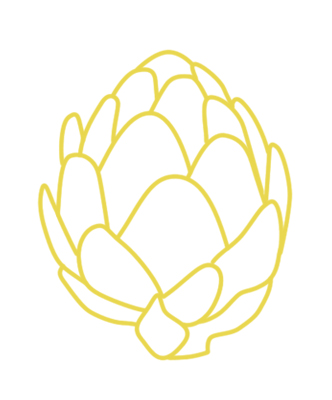Earlier this year, I completed my level 1 aromatherapy training from New York Institute of Aromatic Studies. I’m thrilled to incorporate aromatherapy into my practice. Being able to speak about aroma from food and essential oils brings me a lot of joy :).
Aromatherapy is the practice of using essential oils for therapeutic application to support physical, emotional, mental, and spiritual health. Treatments can be targeted for something specific or more holistic.
I like to think of essential oils like fruit juice. Essential oils are the concentrated form of a plant’s most volatile chemical compounds. Similar to how it takes more than one orange to make a reasonable glass of juice, it takes A LOT of plant material to make a small bottle of essential oil. For example, it takes about three pounds of lavender to produce a 15mL bottle of lavender essential oil - that’s about ½ an ounce! The potency is part of the reason why essential oils are expensive. If you find oils that are below market rate, it usually means the oils are not high-quality and may be mixed with other materials.
Uses for Essential Oils:
There are many uses for essential oils beyond diffusing them as an air freshener. Some uses include:
Promoting relaxation
Improving concentration
Reducing stress, anxiety, and insomnia
Alleviating cold and flu symptoms
Clearing up skin conditions like acne and eczema
Managing nausea, headaches, and migraines
Essential oils can also be applied in acute situations--like itchy insect bites--or holistically--like helping you to feel more energized in the morning without the caffeine jitters.
Starter-Kit: 5 must-have Essential Oils
Like humans, essential oils have personalities and are multi-faceted. One type of oil may have many uses. If you’re thinking about starting your own library, here are some well-rounded oils to have:
Essential Oil Quality
Many essential oil brands speak highly about their purity, sourcing, and sustainability of their oils. But, it’s tricky to figure out which brands are honest because, like the supplement industry, the FDA does not regulate products marketed and sold.
To assist with the purchasing process, Consumer Advocate conducted in-depth research on some popular essential oil brands like Aromatics International, Aura Cacia, doTerra, and Mountain Rose Herbs. Researchers looked into the brand’s quality, sustainability, safety, and what they offered in consumer education. It’s a useful resource, and I recommend giving it a read. However, do keep in mind that not all essential oil companies were researched for this article, and they can still offer great oils. It’s up to us as consumers to do the research too.
Additional Safety Measures & Sustainability
For safety measures, most oils need to be diluted with a carrier oil (e.g., jojoba, coconut, sesame, etc.) before use and used topically only. Ingesting essential oils can be dangerous and should only be done through recommendation and supervision of a clinical aromatherapist. Instead, I recommend consuming these plants as teas or use these herbs and spices in cooking. For example, mint tea with a lemon slice or a bay leaf in a soup.
Lastly, one of the many valuable things I’ve learned during my training is to respect and honor essential oils. It takes time for these plants to grow and mature. When we use essential oils, the plants are giving the best of themselves to support and heal us. We can give back by cherishing our oils and not overusing them. It’s important to understand that there is only so much supply to meet demand.


